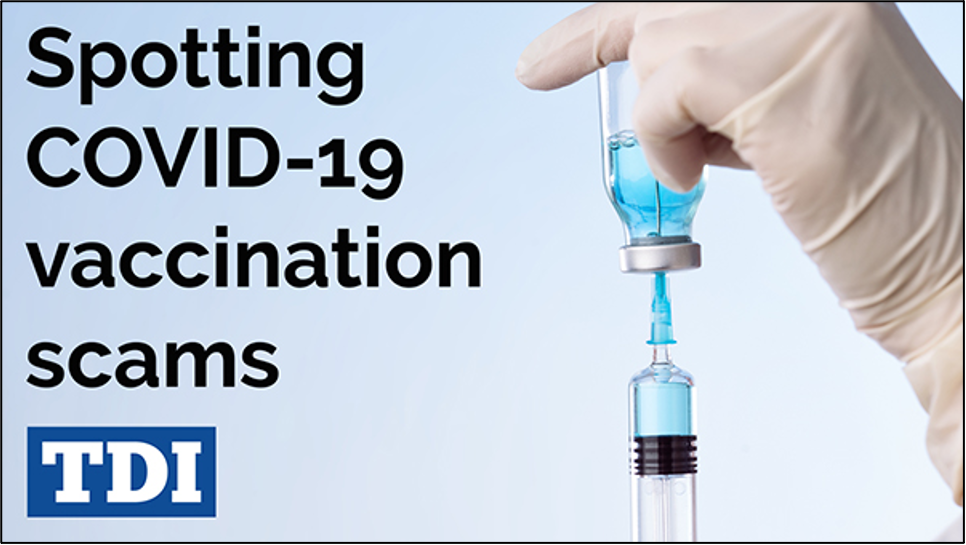Texas Dept. of Insurance
Unfortunately, even in a global pandemic, some people try to steal a buck. Scams related to COVID-19 are the latest threat. Here are common scams and how to avoid them.

Scams you might see
- Someone may call or email asking for your credit card number to pay for a vaccination. Don’t go along. The shots are free. You can’t buy a vaccination through the mail, online, or in stores.
- You might get a call offering virus test kits. This is an attempt to steal your money or personal information. Talk to a doctor if you’re sick or think you need a test.
- Scammers can fake phone numbers or email addresses to look like you are hearing from a doctor’s office or insurance company. Be wary of calls or emails warning you about problems with your insurance plan. Someone could be trying to get you to reveal personal information.
- Some scammers pretend to be COVID-19 contact tracers. Legitimate contact tracers will never ask for your Medicare number or financial information.
Ways you can avoid scams
- Don’t answer calls or respond to texts from unknown numbers and never click on links in messages from someone you don’t know. You could download damaging malware or let criminals think they’ve found a possible target.
- Never share your Social Security number, banking information, or your health insurance policy number with someone you didn’t contact. No one from a vaccine site or insurance company will call to ask for that information.
- Medicare won’t call to offer COVID-19 products, services, or benefit review.
For more information on COVID-19, visit the Texas Department of State Health Services website.